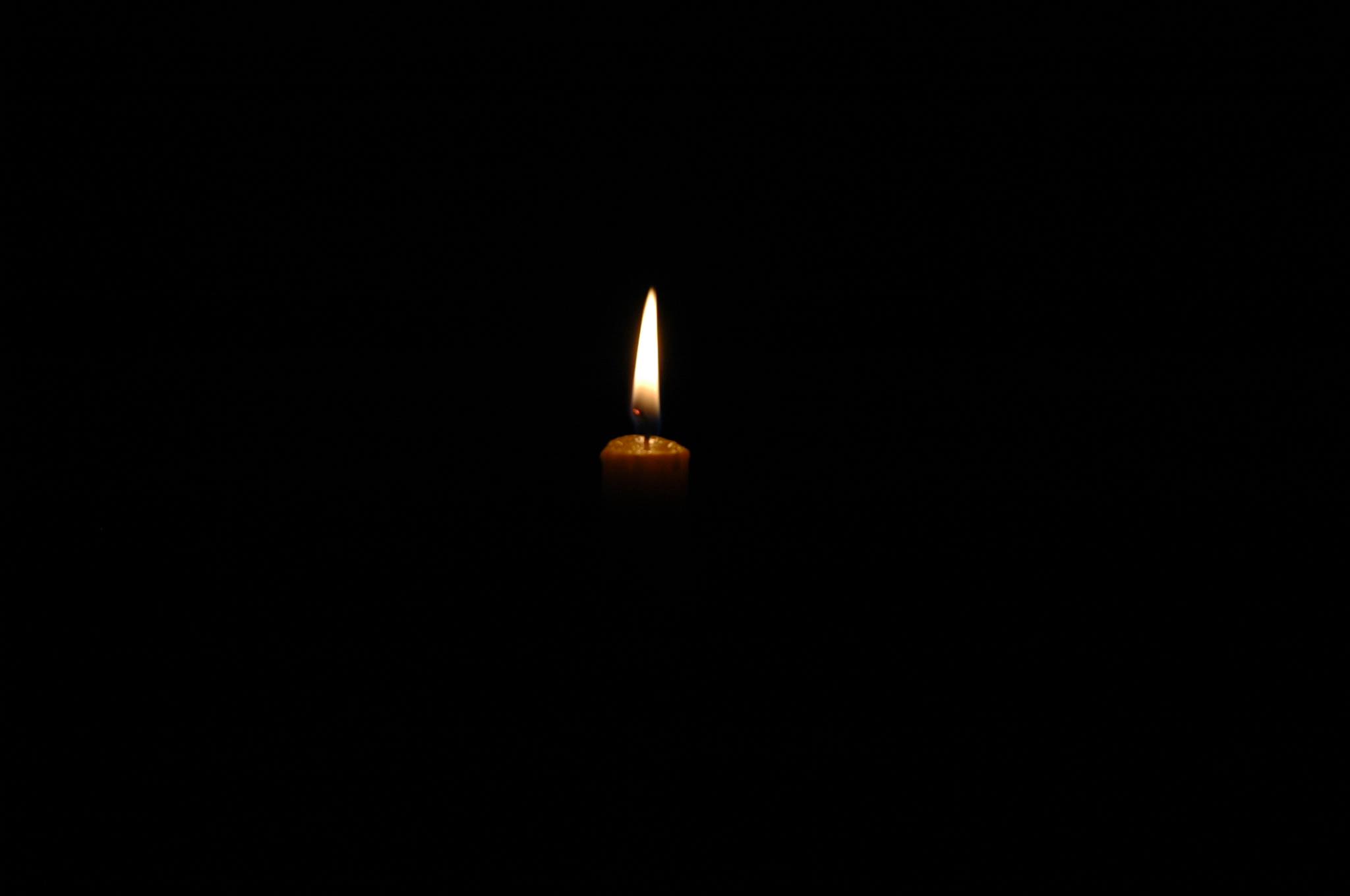
Photo: wordpress.com
Pathways and Steps to Shine in 2016
1- Light a Candle for a Simple Life
"Simplicity is the sign of mastery. You’ve not avoided the difficulties, you’ve solved them. And then everything falls neatly (and with apparent ease) into place. True work, we might say, is making the simple feel easy."
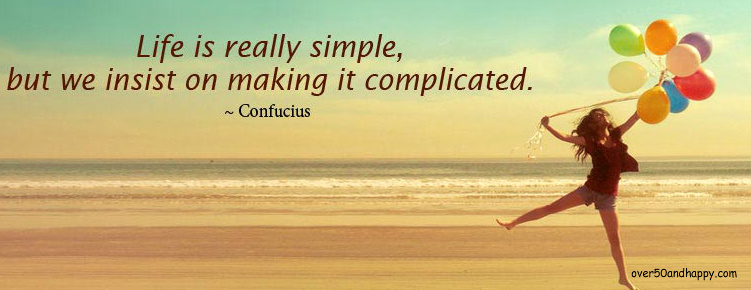
"When we say we’d love a simple life, part of what we’re saying is we’d like to be confident enough to have a simple life, confident not to mind the sarcasm and judgements of others. Simplicity is the opposite of pretension, where we must pretend we are more than we are in order to please others; here we can take the risk of being very minimal, sure that we don’t need the approval of the crowd."
In an age of tech acceleration and the need to consume as much information as quickly as possible, “Slow Reading Sunday” is our journey back to wisdom. I believe in the wise words and sentiments of Mahatma Gandhi, when, well before the digital age of high-speed communication, just-in-time deliveries, social media and twittering, warned us against the pitfalls of living full throttle when he said, "there is more to life than increasing its speed".
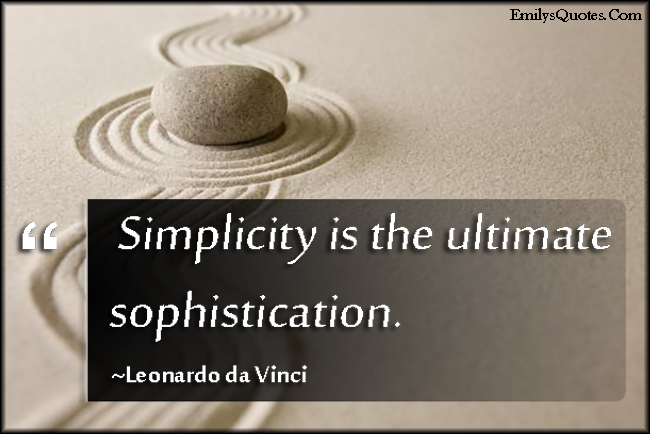
Have you ever stopped and thought about what this life is all about? Have you ever asked yourself questions such as these: How fast is your life moving? Do you ever wish you could slow it down? Ever wish you had a few more hours in the day so you could get everything done you need to get finished? What if, instead of always trying to do more, we slowed down a little and embraced a slower paced life. What if we didn’t try to do everything, but slowed down and concentrated only on the things that are truly valuable and important to us.
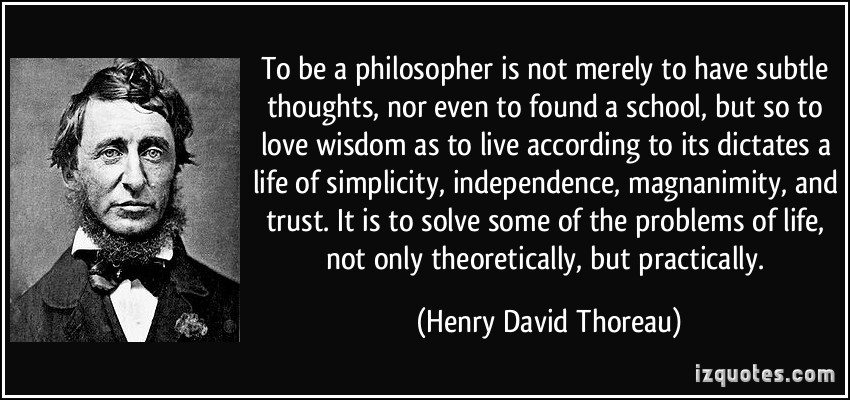
We’re discovering the big meaning of simplicity in our lives. In the past, there were times when no one wanted simplicity. Few people had enough, stimulation was in short supply, and dull routine was the norm. Simplicity could look like deprivation, boredom or lack of opportunity. Now it’s so different. We’ve got too much to do, we’re constantly assailed by demands and offers, and we’re brought up against too much complexity all the time. We’re realising we positively need simplicity: it’s a guide to a better life. Simplicity is in short supply. We need a lot more of it, and may we all find joy in the simple pleasures of life in 2016.
2- Light a Candle for Storytelling
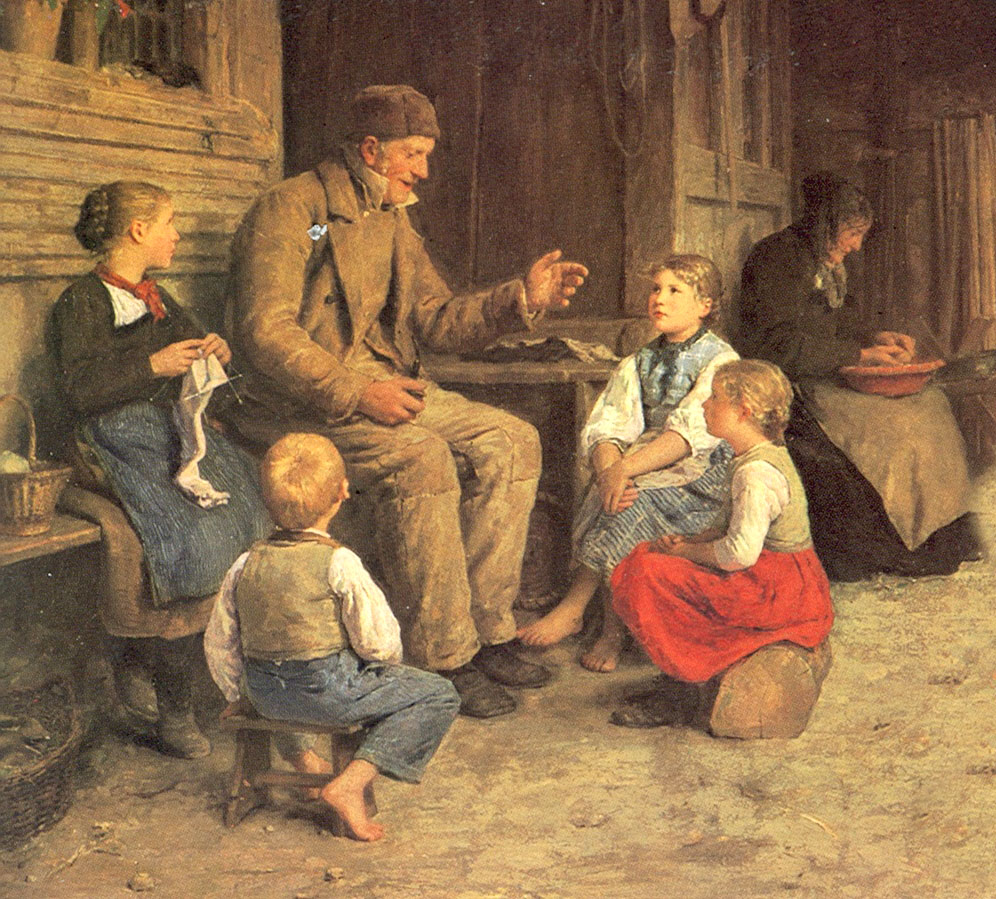
The Storyteller: Anker Grossvater, 1884, Museum of Art of Bern
As it has been said, Storytelling has the capacity to touch our deepest emotions and it can allow us to peer at beauty. We glance at our own creativity and breathe our own thoughts. But more than that: Storytelling is also a wonderful path to set ourselves free, by opening our hearts to others and letting them in; becoming one with one another.
Because, after all, as many have reminded us, the best way to know truth, wisdom or beauty is to try to express it and share it with others.
I firmly believe that storytelling- opening our hearts to others- should be instrumental in enhancing inclusion, social justice, cultural life, and improving physical and emotional health at the individual, local, national and international levels.
So this year have a story ready to share with all those around you. Open your heart to them and let them in, and watch how your friendship grows stronger and deeper.
Compassion and empathy grow from the seeds of understanding.
To develop understanding we need to develop our capacity to reflect...
And to reflect we will need to be able to remember. And to remember we will need to forgive. And to forgive we need to be able to reconcile. Thus, this is the path to transforming conflicts, bringing peace with justice and building a better world: compassion, empathy, reflection, rememberance, forgiveness and reconciliation.
These are the values I learnt from the “Story of Coventry and Coventry Cathedral” which is my Christmas Story to tell:
“Father, Forgive” - these two words which I discovered at the ruins of Coventry Cathedral in 1973 changed the course of my life.
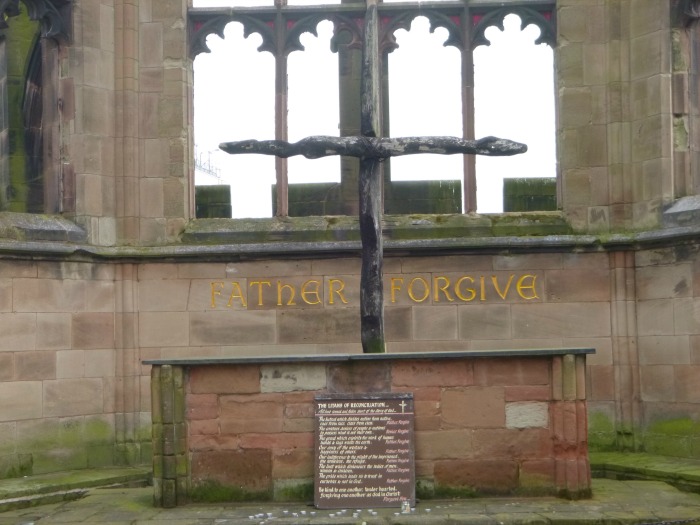
Photo: Anne Mofid
This is the story I must tell:
Coventry and I: The story of a boy from Iran
Who became a man in Coventry
Coventry and I: The story of a boy from Iran who became a man in Coventry
3- Light a Candle for Forgiveness and Reconciliation
“No matter how dark the night, morning always comes. And our journey begins anew.”- Anonymous
For those who want a fresh start for the New Year, beginning with forgiveness will make it easier to keep those resolutions.
Nelson Mandela offered his philosophy of forgiveness after 27 years in prison. His words hold true for all:
“As I walked out the door toward the gate that would lead to my freedom, I knew if I didn’t leave my bitterness and hatred behind, I’d still be in prison.”
Forgiveness - The Keystone of Human Values
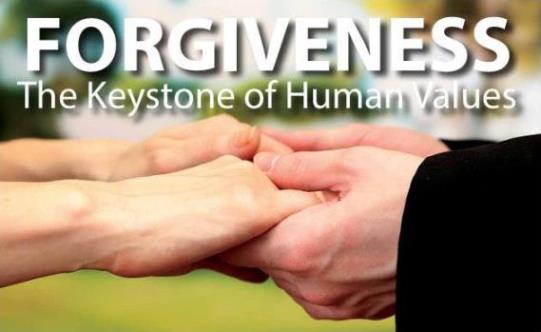
Photo: pioneerassociation.ie
Here, the wise and eloquent words of Archbishop Desmond Tutu writing in the Greater Good (1 September 2004) ring so true:
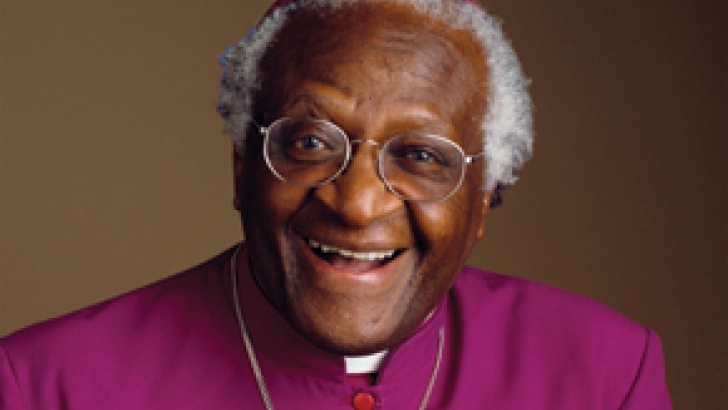
Archbishop Desmond Tutu
Photo: wordpress.com
“Forgiveness gives us the capacity to make a new start. That is the power, the rationale, of confession and forgiveness. It is to say, “I have fallen but I am not going to remain there. Please forgive me.” And forgiveness is the grace by which you enable the other person to get up, and get up with dignity, to begin anew. Not to forgive leads to bitterness and hatred, which, just like self-hatred and self-contempt, gnaw away at the vitals of one’s being. Whether hatred is projected out or projected in, it is always corrosive of the human spirit.
“We have all experienced how much better we feel after apologies are made and accepted, but even still it is so hard for us to say that we are sorry. I often find it difficult to say these words to my wife in the intimacy and love of our bedroom. How much more difficult it is to say these words to our friends, our neighbours, and our co-workers. Asking for forgiveness requires that we take responsibility for our part in the rupture that has occurred in the relationship. We can always make excuses for ourselves and find justifications for our actions, however contorted, but we know that these keep us locked in the prison of blame and shame.
“In the story of Adam and Eve, the Bible reminds us of how easy it is to blame others. When God confronted Adam about eating the forbidden fruit from the Tree of Knowledge of Good and Evil, Adam was less than forthcoming in accepting responsibility. Instead he shifted the blame to Eve, and when God turned to Eve, she, too, tried to pass the buck to the serpent. (The poor serpent had no one left to blame.) So we should not be surprised at how reluctant most people are to acknowledge their responsibility and to say they are sorry. We are behaving true to our ancestors when we blame everyone and everything except ourselves. It is the everyday heroic act that says, “It’s my fault. I’m sorry.” But without these simple words, forgiveness is much more difficult.
“Forgiving and being reconciled to our enemies or our loved ones are not about pretending that things are other than they are. It is not about patting one another on the back and turning a blind eye to the wrong. True reconciliation exposes the awfulness, the abuse, the pain, the hurt, the truth. It could even sometimes make things worse. It is a risky undertaking, but in the end it is worthwhile, because in the end only an honest confrontation with reality can bring real healing. Superficial reconciliation can bring only superficial healing.
“If the wrongdoer has come to the point of realizing his wrong, then one hopes there will be contrition, or at least some remorse or sorrow. This should lead him to confess the wrong he has done and ask for forgiveness. It obviously requires a fair measure of humility. But what happens when such contrition or confession is lacking? Must the victim be dependent on these before she can forgive? There is no question that such a confession is a very great help to the one who wants to forgive, but it is not absolutely indispensable. If the victim could forgive only when the culprit confessed, then the victim would be locked into the culprit’s whim, locked into victimhood, no matter her own attitude or intention. That would be palpably unjust.
“In the act of forgiveness, we are declaring our faith in the future of a relationship and in the capacity of the wrongdoer to change. We are welcoming a chance to make a new beginning. Because we are not infallible, because we will hurt especially the ones we love by some wrong, we will always need a process of forgiveness and reconciliation to deal with those unfortunate yet all too human breaches in relationships. They are an inescapable characteristic of the human condition.
“We have had jurisprudence, penology in Africa that was not retributive but restorative. Traditionally, when people quarrelled, the main intention was not to punish the miscreant but to restore good relations. This was the animating principle of our Truth and Reconciliation Commission. For Africa is concerned, or has traditionally been concerned, about the wholeness of relationships. That is something we need in this world—a world that is polarized, a world that is fragmented, a world that destroys people. It is also something we need in our families and friendships. For, retribution wounds and divides us from one another. Only restoration can heal us and make us whole. And only forgiveness enables us to restore trust and compassion to our relationships. If peace is our goal, there can be no future without forgiveness.”
4- Light a Candle to take actions in the interest of the common good
To explain and express the timeliness of taking actions in the interest of the common good, I can do no better than sharing with you “The Story of the GCGI”:
Why Love, Trust, Respect and Gratitude Trumps Economics: Together for the Common Good
(Written to Commemorate the 10th Anniversary of the GCGI)
Oxford 2002 to Oxford 2012
Portrait of a Great Journey for the Common Good
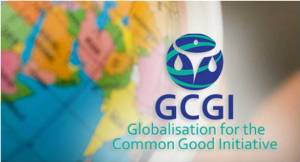
We live in difficult and troubling times, facing unprecedented global challenges in the areas of climate change and ecology, finance and economics, hunger and infectious disease, international relations and cooperation, peace and justice, terrorism and war, armaments and unprecedented violence. It is precisely in times like these – unstable and confusing though they may be – that people everywhere need to keep their eyes on the better side of human nature, the side of love and compassion, rather than hatred and injustice; the side of the common good, rather than selfishness, individualism and greed.
People need to see that there are serious alternatives to the world’s present failing policies, rules and institutions, and that there are likeminded global citizens who share a vision of hope and common values that can lift them out of the deep sense of powerlessness and despair that is now affecting so many parts of the world.
Guided by the principles of hard work, commitment, volunteerism and service; with a great passion for dialogue of cultures, civilisations, religions, ideas and visions, at an international conference in Oxford in 2002 the Globalisation for the Common Good Initiative (GCGI) and the GCGI Annual International Conference Series were founded.
The Globalisation for the Common Good Initiative Annual Conference series have ranged far across the world through Oxford, Saint Petersburg, Dubai, Nairobi/Kericho, Honolulu, Istanbul, Melbourne, Chicago and Thousand Oaks, California. The 10th Annual Conference, once again, is returning to Oxford in September 2012.
The GCGI conferences have created and continue to create an ever-widening international community of scholars, researchers and experts, forging links and establishing dialogues across national, cultural, religious, and academic boundaries, and putting into practice the movement’s core philosophy: that globalisation need not be defined merely in terms of impersonal market forces, but can be a power for good, building spiritual bonds that can unite humanity and bring different cultures, civilisations, faiths and academic disciplines closer together.
Today the GCGI is considered a leading progressive think tank, producing cutting-edge research and innovative policy ideas for a just, democratic and sustainable world. For the last 10 years, GCGI has helped shape the progressive thinking that is now the political centre ground. Independent and radical, we are committed to combating inequality, empowering citizens, promoting social responsibility, creating a sustainable economy and revitalising democracy. Best known for our influential work on Globalisation for the Common Good, Business Ethics and Corporate Social Responsibility, Value-led Economics and Business Education, Ecology, Environment& Sustainable Development, Interfaith Dialogue and more, we now have significant cooperative projects with a number of universities, think tanks and civil societies in many countries around the world. GCGI’s media programme and its influential online Journal, Journal of Globalisation for the Common Good, hosted at Purdue University, has since its inception in 2005 made significant contribution in furthering progressive goals in education and media policy.
What the GCGI seeks to offer- through its scholarly and research programme, as well as its outreach and dialogue projects- is a vision that positions the quest for economic and social justice, peace and ecological sustainability within the framework of a spiritual consciousness and a practice of open-heartedness, generosity and caring for others, by encouraging us all to know and to serve the common good.
The GCGI is a non-profit making initiative with no formal income, capital, seed money, or endowment. It has no bank account, cheque book, team of fund-raisers and accountants. This self-sustaining funding mechanism has been a key lynch pin of our independence and integrity. At no point in our history has the GCGI been so reliant on external sources that if external funding is removed, the GCGI cannot continue.
The most precious capital that the GCGI has had is the calibre of its friends and supporters, including the universities that have hosted its annual conferences, and more, which with their love, trust and goodwill have committed themselves as partners in shared vision, to support the GCGI in a spirit of moral, spiritual and intellectual collaboration to further its work.
Reflecting on our shared journey for the common good, it is amazing to me that ten years have gone by so quickly. What began as a simple idea to share the practical wisdom of the common good, dialogue, love, generosity, kindness, and more has blossomed into an internationally recognized non-profit organization that has become a leading resource “inspiring people to do great things for the common good”.
From the very beginning, I knew that we will succeed, if we can reach-out to everybody around the world and be an all volunteer network of individuals, while approaching our growth organically and focusing on our vision and mission.
As you might imagine, in the initial days when we began sharing our vision of doing things for the common good, we were met with a great deal of scepticism, apprehension, and thankfully, some warm embraces and love. We were energized by all of those early experiences and continued to find ways to build ideas, programmes and initiatives around our main message and theme of Globalisation for the Common Good.
Perhaps our greatest accomplishment has been our ability to bring Globalisation for the Common Good into the common vocabulary and awareness of a greater population along with initiating the necessary discussion as to its meaning and potential in our personal and collective lives.
In the last ten years and so, similar to all those who have taken a similar value-based-journeys of self-discovery, I, too, have also realized that, “From the great oceans, vast plains and highest mountains that sustain our fragile and vital ecosystem, to our village friends and city dwellers that bring meaning to our common journey, we are quickly realizing that everyone and everything is interconnected and interdependent.
With each passing day, it is also increasingly evident in every corner of our world that great change is upon us and that by standing together in mutual respect, honour and dignity for one another, we will answer this call with creative, viable and sustainable solutions.
We must take the necessary steps now to reach out to our fellow humans and extend our hand in forgiveness, acceptance and genuine friendship. Our choices shall be made from compassion while embracing the richness of our amazing diversity. The love and acceptance we have for ourselves will be the source of our strength to assist others. Together we can and will make a difference through love.
These necessary changes may challenge us to the depths of our courage and test the very essence of our personal character, yet with each ensuing breath we shall remain in love and this love will be the very basis of a new era of peace and abundance, equality and goodwill for all”.
In short, at Globalisation for the Common Good Initiative we are grateful to be contributing to that vision of a better world, given the goals and objectives that we have been championing since 2002. For that we are most grateful to all our friends and supporters that have made this possible.
Therefore, yes, it is true: “Love, Trust, Respect and Gratitude Trumps Economics”.
And now my New Year gift to you all:
A gift for you
You've no idea how hard I've looked for a gift to bring You.
Nothing seemed right.
What's the point of bringing gold to the gold mine, or water to the Ocean.
Everything I came up with was like taking spices to the Orient.
It's no good giving my heart and my soul because you already have these.
So- I've brought you a mirror.
Look at yourself and remember me.-Rumi
With excitement for all we will do together in the years to come,
Kamran
Read More:
Rev Cecil A Newell, Better to Light a Candle than to curse the darkness, Amazon.co.uk, 4 January 2015
